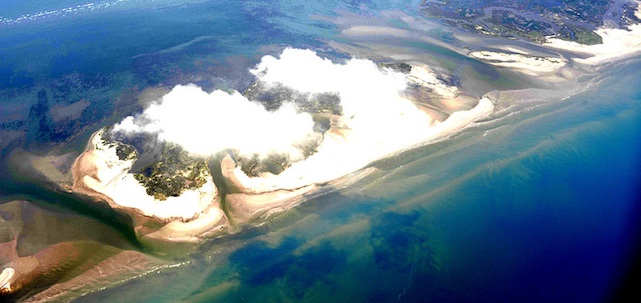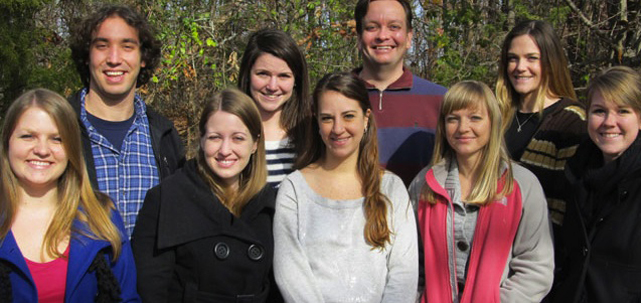
Gulf Oil Spill
Years after BP’s Deepwater Horizon oil rig exploded off the Gulf Coast, the effects of the disaster still linger. The accident on April 20, 2010, killed 11 people and poured 200 million gallons of oil into the Gulf of Mexico over the next three months. It was the worst oil spill in U.S. history.
The environmental devastation grabbed most of the headlines, but the human impact was just as significant. Millions of Gulf Coast residents were affected by the disaster. Rig workers found themselves unemployed, and the fishing and tourism industries — both major contributors to the Gulf Coast economy — suffered huge hits. As of December 2011, BP had paid more than $21 billion in cleanup costs and economic damages. Yet a report by the U.S. Travel Association estimated that the spill could cost the coastal region $22.7 billion over three years in lost tourism alone.
“Yes, it’s an environmental disaster, but it really affects people’s lives financially,” says Scott Sumrall, director of disaster preparedness and response with the Mississippi Department of Mental Health.
Along with that financial devastation came depression, anxiety and even post-traumatic stress disorder (PTSD). To address the mental health effects, BP provided $12 million to the Mississippi Department of Mental Health Oil Spill Recovery–Behavioral Health Grant Program for outreach, training and clinical services. Most of the grants went directly to mental health centers and other groups that provide direct care to people on the coast. But $285,000 of that funding, over a two-year period, also went to Stefan Schulenberg, PhD, an associate psychology professor at the University of Mississippi, and a team of graduate students who have been charged with assessing how well the program is meeting the mental health needs of people on the Mississippi coast.
The team is still in the process of collecting and analyzing data and evaluating the program’s effectiveness. But it’s not too soon to say that the program has been a terrific educational opportunity for the graduate students involved. “I’ve learned a lot about working with a team, how to collaborate with others,” says Bethany Aiena, a psychology graduate student at the University of Mississippi. For her, the mission hits close to home. “I’m from Texas and I lived near the coast. We’ve been hit by our fair share of hurricanes and natural disasters,” she says. “Being personally affected, I can see how the people of Mississippi can benefit from people like us sorting through and finding empirically valid techniques to better serve them.”
A Diversity of Programs
The mission of Schulenberg and his students is twofold. They are collecting data about the psychological impact of the oil spill, estimating how much the disaster has affected factors such as depression, stress, anxiety, PTSD and life satisfaction. They’re also assessing the grant program itself, gathering information about the therapy, training and outreach activities mental health organizations have provided with the BP grants.
Members of the University of Mississippi Clinical-Disaster Research Collaborative include (from left) Bethany J. Aiena, Christopher F. Drescher, Brandy J. Baczwaski, Lauren B. Flegle, Stevie W. Campbell, Dr. Stefan E. Schulenberg, A. Brooke Walters, Laura E. McIntire and Kristie V. SchultzThe grants were distributed to a variety of facilities and programs. The funding allowed some established mental health facilities to expand existing clinical programs, such as one-on-one psychotherapy. Other programs were launched specifically to help people deal with the aftermath of the accident, offering art-based therapy for children, resilience training for affected families and outreach programs targeting minority groups that are traditionally reluctant to seek out services.
“There’s quite a diversity of programs being offered,” Schulenberg adds. “The challenge is that each site is doing something different. Our task was to develop a method of collecting data that was general enough that it could be applicable across all 19 sites but specific enough that it could still yield useful information.”
Schulenberg has a large team to help him sift through all that data. Last year 10 graduate students were funded by the project, and this year eight students are onboard. They are a key part of the effort, Schulenberg says. Some students, such as Aiena, work on the data team, helping to enter data collected by the sites receiving funding. Others act as site liaisons, staying in regular contact with grant recipients to help answer questions about data collection procedures and make sure the sites have questionnaires and any other materials they need to collect the necessary information from patients and practitioners.
“In real-world settings, it’s challenging to collect good data and do so in a manner that doesn’t disrupt day-to-day operations at different sites,” Schulenberg says. “Both student teams are invaluable in terms of helping to make the process a smooth one.”
Brooke Walters, a PhD candidate at the University of Mississippi, is overseeing six site liaisons. She says the opportunity has been excellent for gaining supervisory experience, which she hopes to put to use in a career of hospital administration. The project has also taught her about the complexities of managing projects on such a large scale, juggling issues such as securing grant money, satisfying funding requirements and ensuring that patients continue to receive adequate care as needed. “I’ve learned that mental health goes a lot deeper than just trying to help [individual] people,” she says.
The Need Remains
The grant program runs through June 2012, so Schulenberg and his team are still collecting and analyzing data. But based on preliminary findings, it seems clear that the oil spill harmed the community’s mental health. As of last September, approximately 53 percent of adults who sought mental health services through the program reported severe or extremely severe stress. A worrisome 54 percent reported severe or extremely severe depression and 54 percent reported severe or extremely severe anxiety. In addition, approximately 40 percent met the clinical criteria for PTSD.
It’s too soon to pinpoint exactly what effect the program has had, but data from the U.S. Centers for Disease Control and Prevention suggest mental health has improved in the Mississippi coast region in the months immediately following the disaster. A CDC survey conducted in October found that 15 percent of respondents in the general population reported symptoms of depression, compared with nearly 25 percent the year before. It’s a positive sign, but the region is still showing elevated distress compared with the general U.S. population, where about 9.5 percent of CDC survey respondents report symptoms of depression.
“What is very clear is that Mississippi residents continue to need mental health services,” Schulenberg says. “We feel this collaboration with the Mississippi Department of Mental Health has been very informative, and I think it’s a good model for other states to follow in similar situations.”
Even as the grant winds down, Schulenberg hopes to establish a center for clinical disaster research at the University of Mississippi that will focus on research, teaching, training and service. “It would give students the opportunity to continue to do research and analysis with real-world data,” he says. “It’s about getting students trained to go out into the community and really have a positive impact.”
In the meantime, students like Aiena are gaining a lot from the oil-spill project. “This project made me much more aware of the role that psychology plays in people’s everyday lives,” she says.
Kirsten Weir is a writer in Minneapolis.
 Change Agents for Mississippi—In April 2010, the explosion of the Deepwater Horizon oil rig spread almost 5 million barrels of oil into the Gulf of Mexico, creating an environmental disaster of a magnitude never before seen. Three hundred miles from the coast, researchers at the University of Mississippi stood ready to offer their service and expertise. UM researchers led the way in studying the environmental and social repercussions of the Deepwater Horizon Oil spill.
Change Agents for Mississippi—In April 2010, the explosion of the Deepwater Horizon oil rig spread almost 5 million barrels of oil into the Gulf of Mexico, creating an environmental disaster of a magnitude never before seen. Three hundred miles from the coast, researchers at the University of Mississippi stood ready to offer their service and expertise. UM researchers led the way in studying the environmental and social repercussions of the Deepwater Horizon Oil spill.






